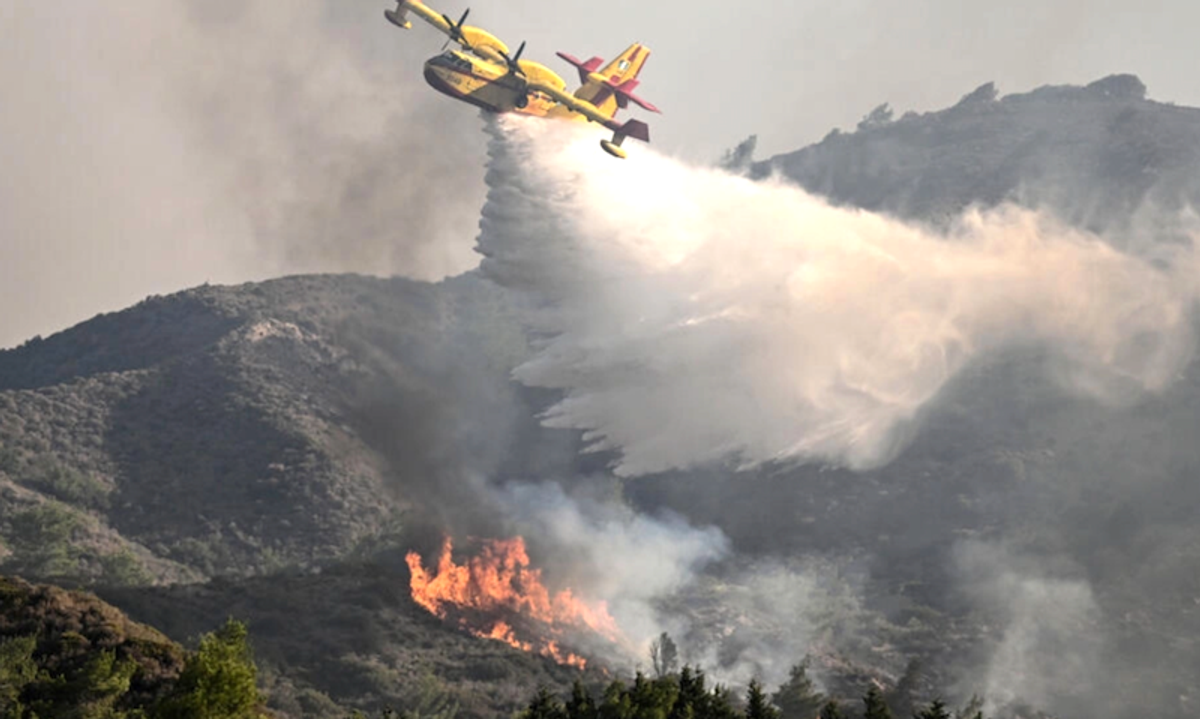
Two pilots died after their firefighting plane that was spraying water over a wildfire in southern Greece crashed.
Greece’s air force confirmed that the pilots, aged 27 and 34, were killed in the crash on the island of Evia on Tuesday.
Footage in a state television broadcast showed the low-flying aircraft disappearing into a canyon before a fireball was seen moments later.
State broadcaster ERT said the incident occurred over the town of Karystos on the island near Athens, where a fire has been burning.
It is believed the plane clipped a tree before plunging into the ravine.
A fire service spokesperson told the BBC the aircraft was a Greek air force plane.
The air force launched a search and rescue operation to locate the pilots on board.
A third successive heat wave in Greece has pushed temperatures back above 40C across parts of the country on Tuesday following more nighttime evacuations from fires that have raged out of control for days.
The latest evacuations orders were issued on the islands of Corfu and Evia, while a blaze on the island of Rhodes continued to move inland.
Hundreds of firefighters, helped by forces from Turkey and Slovakia, have been battling the Rhodes fire since Wednesday. The fire has resurged in hot, windy conditions.
Thousands of Brits have been flown back from the island - with many more facing their summer holidays being cancelled.
More emergency flights were due to take home holidaymakers.
Tourists have been warned of an “extreme fire risk” in Crete.
Greek Prime Minister Kyriakos Mitsotakis has warned of tough days ahead, with conditions possibly improving after Thursday.
"All of us are standing guard," he said. "In the face of what the entire planet is facing, especially the Mediterranean which is a climate change hot-spot, there is no magical defence mechanism, if there was we would have implemented it."
On Rhodes an investigation has been launched into the causes of the fires and the preparedness and response of authorities, state broadcaster ERT said. It said about 10% of the island's land area had burned.
An assessment by scientists published on Tuesday said human-induced climate change has played an “absolutely overwhelming” role in the extreme heatwaves that have swept across North America, southern Europe and China this month.




